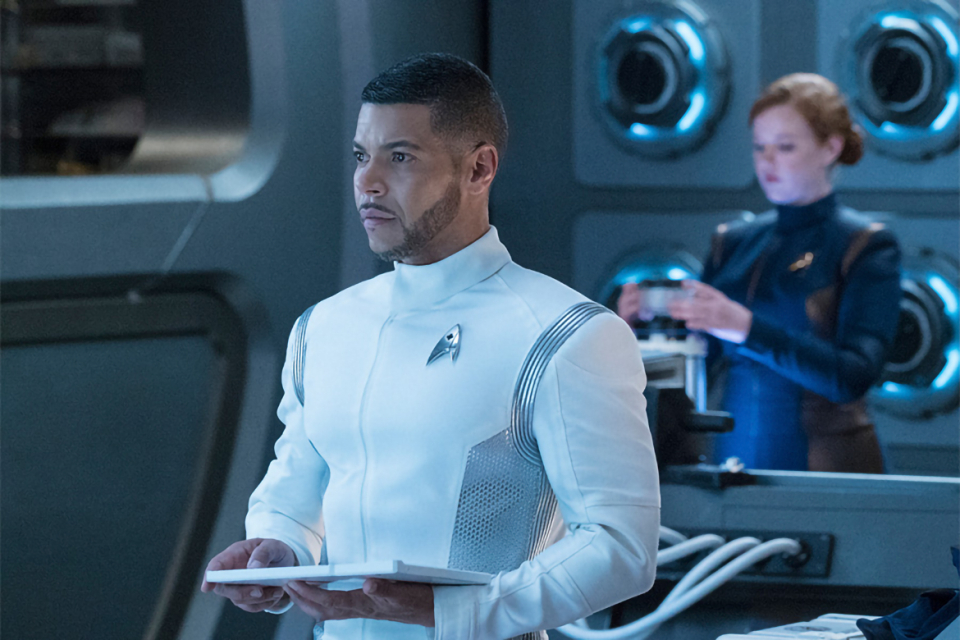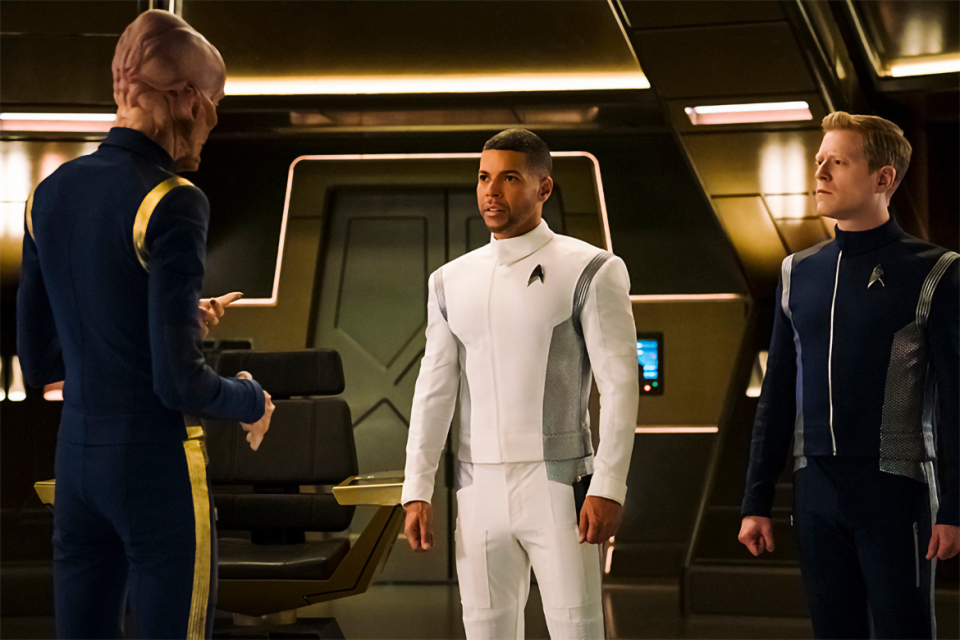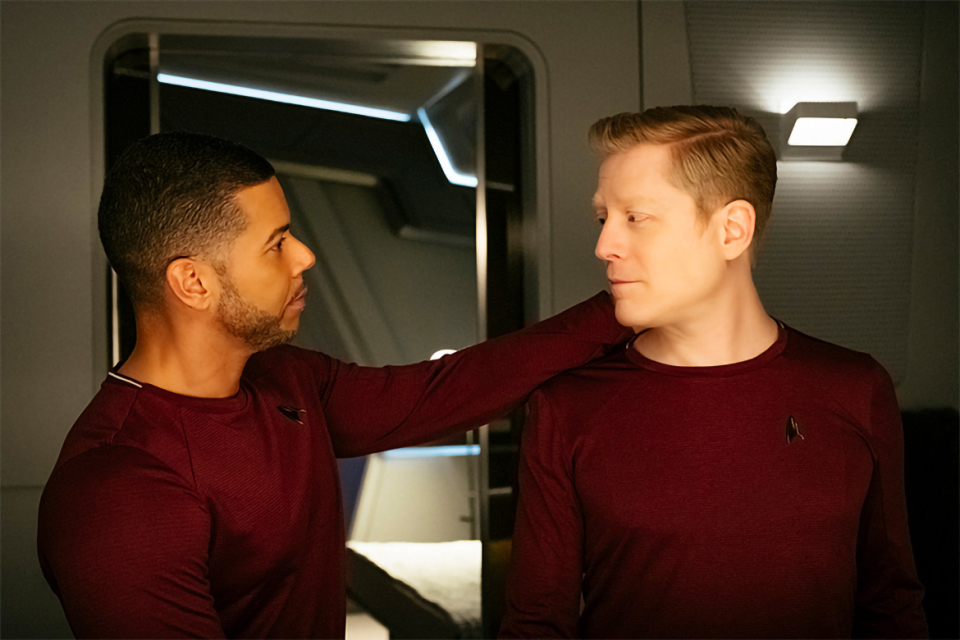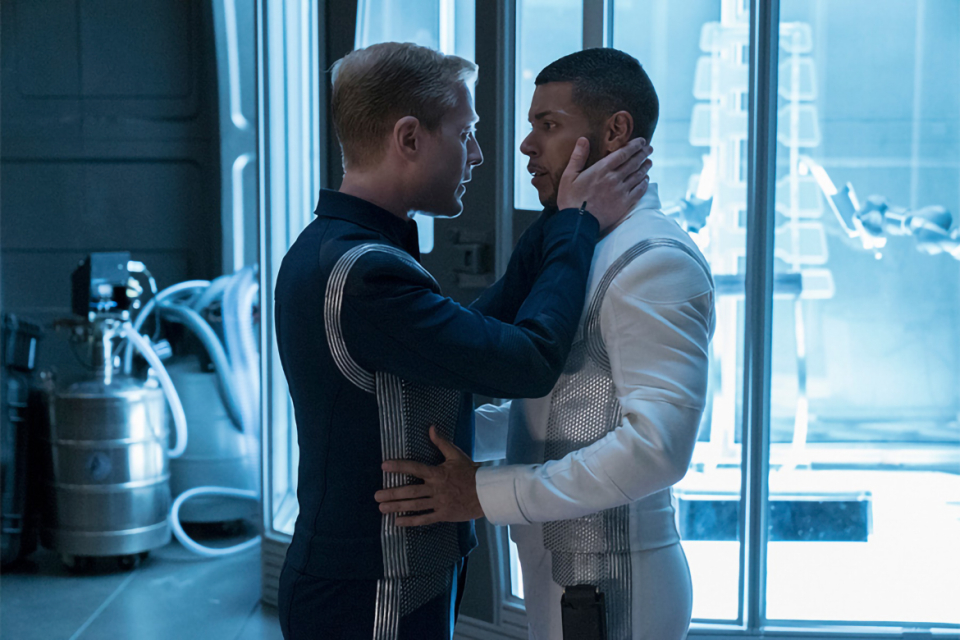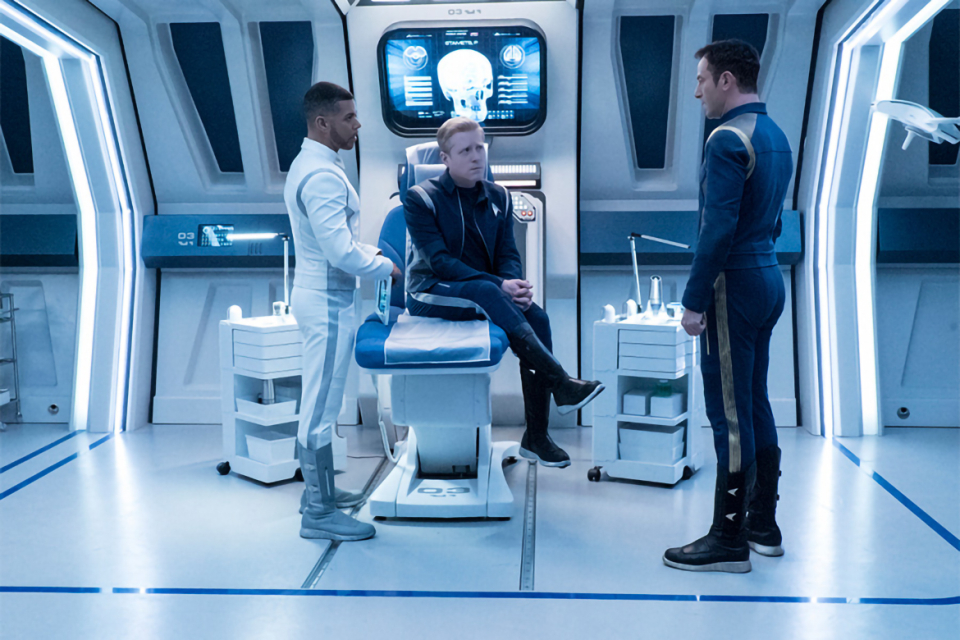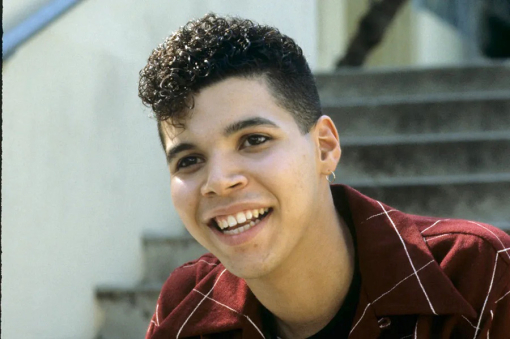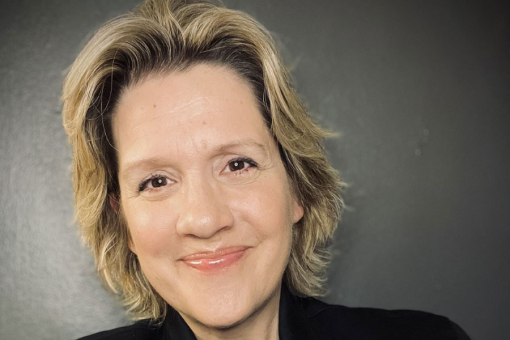Wilson Cruz has never been afraid of blazing the trail.
He was the first openly gay man to portray an openly gay teen on My So-Called Life and part of the first same sex couple shown on television in the Star Trek universe.
His resume, which spans over two decades, includes character portrayals from all walks of life. But what they have in common, whether it's a lawyer on 13 Reasons Why who addresses bullying or a nurse on Red Band Society, is - they're not afraid to speak up.
But Cruz doesn't just let his scripts do the talking. He uses his voice and his platform to share awareness about pressing issues that touch every aspect of life. From 2012-2014, he served as a national spokesperson for GLAAD and helped bridge the gap between the LGBTQ community and the entertainment world/media.
When did you know you were a performer?
I was one of those kids in school who was just drawn to a stage. I started in the orchestra, playing the sax, clarinet and flute in elementary school. And that brought me to show choirs which brought me to theater. So by the time I was in high school, the bug had bitten me and I was looking for any and every way.
If you go by my mom, there was never a doubt about what I was going to do. It was just a matter of where I was gonna focus my energy and how long it was gonna take.
So your mom knew your destiny?
She knew. When I look at my family, my father, my mother, my grandmother, these are all people who should have been on a stage. And they just didn't have the means or the opportunity.
And you got the gene.
And they gave me the opportunity!
How old were you when you landed My So-Called Life?
I was 19. I was in college and it came out of the blue! I was with a really small agency at the time and they sent over the script and said, "Here's a character that we think you might respond to." I read it and it felt like somebody had just followed me around high school.
To hear Winnie Holzman tell it, after my audition she said to Ed and Marshall, "That's the person I pictured when I was writing this." And then she said, "I just hope he can act!"
Here's a good thing for actors to know. I think creators want you to do some of the work for them. They have an idea who a character is and then they audition someone and hope that this person literally breathes life into it. I understood who Rickie Vasquez was in a way that Winnie wanted to understand him. And I helped her understand him and we became partners in that way.
My So-Called Life was exciting as it was right in the middle of "Don't ask, don't tell." And here you were saying, "I'm telling!"
Yes, it was the middle of "Don't ask, don't tell," but it was also the middle of the Clinton years, which changed a lot about how we talked about these issues. And there were people who were out, openly in the public eye. Melissa Etheridge, k.d. lang, Elton John, Harvey Fierstein, who was a beacon for me. Ian McKellen - all these people who infused me with the courage to do it!
But they hadn't played a character who was out, at least on television.
True. And that risk wasn't lost on me for sure. But at even at 19, I thought that there were roles out there that people want to create, but didn't have a vessel or an actor willing to do it with enthusiasm.
I think people wanted to talk about gay teens, they wanted to talk about LGBT issues, but they just didn't have the enthusiastic partners yet. You had to coax people. "This could be good for your career, you're taking a risk, it will show your range." Whereas for me, I wanted to tell the story because this represented my experience and the experiences of people I know.
You played Angel in Rent, which I'd imagine was quite difficult. Can you talk about that?
When I think about Rent, I think about the audacity of youth. I didn't know enough to be afraid. I knew it was a big deal and when I saw the show and I knew how brilliant Wilson Heredia was. But I also knew I could do my own thing with it and not have to copy him.
In rehearsals, I said to Michael Greif, I don't want to do Wilson Heredia's show. He's amazing, but there other things to say about the character because it's so rich.
He encouraged you to make it your own?
Yes! He loved that I wanted to do that. I got to flesh out a part of the story that meant something to me which was about the pain of what happens to you when - in the prime of your life - you have to say goodbye to the people that you love.
This is a theme for Star Trek: Discovery, which is the first show in the Star Trek universe to portray a same sex couple.
Well for Star Trek TV. At the end of the Star Trek Beyond movie, John Cho's character, Sulu, greets his partner. But that's all we get to see of it - so far! I'm hoping that in the next iterations they'll be able to explore that.
Your character, Dr. Hugh Culber, appears to have a beautiful connection with your on-screen partner, played by Anthony Rapp.
It's not an accident. I've known Anthony for 20 years. I did his last three weeks on Broadway. And as fellow openly gay actors, we've talked through the years about what that experience is. We've supported and rooted for each other.
When we came to this, I think we both felt like it was a really special opportunity in that we've had all of this history and compassion and respect for each other's talent. So I think we both decided, without even saying it, that we were gonna use our real love for each other to draw on to tell the story.
The process for creating a relationship is different for everyone on TV. And sometimes you talk it through and create a history with each other. But there was this unspoken thing with Anthony and we didn't have to do any of that. We just showed up on set and decided we loved each other and took it from there. And it was really easy!
Without giving spoilers, what did you think of your character's twist?
Aaron and Gretchen explained what was gonna happen and told me I was part of the story for next season. This is a longer, epic love story and this is just a part of that that we have to do in order to tell it. I know what that story is and as an actor, I'm really excited about it. But even as a viewer, I think that's gonna be fun to watch!
How did fans react?
We're letting people know I'll be back because there's this "bury your gays" trope that's out there. People are concerned about the way that LGBTQ characters, especially those of color and women, continue to be killed off in a very random and dismissive way.
We wanted to make sure that people stayed engaged with the show because this isn't that. They should just know there's a bigger plan. It's gonna pay off and it's a great story to tell.
Love has a way of telling its own story.
What else are you working on?
I'm actually producing a six part documentary on the history of LGBT images on television. It's called Out of the Box and we should be making an announcement pretty soon. I've been working on it for a couple of years and I'm excited about that because we take a look at how we got to where we are today.
As difficult of a struggle to get LGBT people visible, when we really look at it, it kind of happened pretty fast. And thanks in large part to organizations like GLAAD.
I loved talking to people like Norman Lear about why he decided to put LGBT people on TV.
Did Norman wear his white hat?
Yes! And we've got everyone you could think of talking about it on camera: Jill Soloway, Max Mutchnick, Sean Hayes, Laverne Cox!
They're talking about LGBTQ portrayals in TV and film?
Our relationships are not just about being sexualized, but at the same time, knowing we are sexual creatures and that there's nothing to be ashamed of in how we express that. And I think television and film are capable of making that easier for people to understand.
As fast as we have progressed, there's still a lot of work to do in terms of diversity within our community. And helping audiences become comfortable with affection. I think it's debilitating to people in the LGBTQ community when we sense shaming coming from other people just because we hold someone's hand, kiss someone on the cheek in public.
…which you're showing on Star Trek: Discovery.
It was important for me and for Anthony to show that there was intimacy. And that's not about sex; it's about a feeling of comfort that I needed to show. I wanted to touch him, as I would in real life.
Those were the conversations I had when I worked at GLAAD. I had amazing partners at those networks who wanted to do better and who wanted to have permission to be given better representation. People like Bob Greenblatt at NBC and Nina Tassler at CBS who were really incredibly receptive. Tiffany Smith-Anoa'i, in charge of diversity at CBS, became a good friend.
The work you did with GLAAD meant a lot to you.
Yes! I think the work that GLAAD does is really valuable. Our job was to direct attention to the good things that were happening and how those were things we wanted to see more of. I loved my time at GLAAD. I got to meet people and have conversations that I always wanted to have.
And I was just with them! I just announced their nominations for the GLAAD Awards at Sundance.
With all of your work as an actor, you don't have to take time to advocate for these issues and you do it anyway.
I feel like I have to. I feel like if you're a public figure and you're LGBTQ right now, these are revolutionary times. I'm not saying to pick up an armed weapon. I'm saying use your voice - what you have at your disposal to tell your story and to illuminate the experience of LGBTQ people! Because that's the only way you change minds.
So I don't know how you live in these times, especially this last year, and not use your voice if you have that capability. I think you're seeing that with women right now too. The power that is being unleashed is inspiring and really incredibly moving and I think we all need to be doing that.
It's also happening with Puerto Rico right now. When stuff like this happens, I think with people like Lin-Manuel and Jennifer Lopez and Ricky Martin and myself, we feel like we have to say something because we have a bigger platform.
We live in times when those platforms are more important than ever.
There's that Martin Luther King quote I like, "The arc of the moral universe is long, but it bends towards justice." But he also says that it doesn't "roll in on the wheels of inevitability." That it takes concerted effort on the parts of citizens in order to make that happen. And I think people started to forget that. Maybe we got complicit.
I think that's what Star Trek is about. Yes, they live in this idealized Utopian society, but how did they get there? That's an important conversation to have. Yes, it's sci-fi and it's fun and exciting, but there's something to be said about how it allows us to dream about the world we want to inevitably live in and leave behind.

